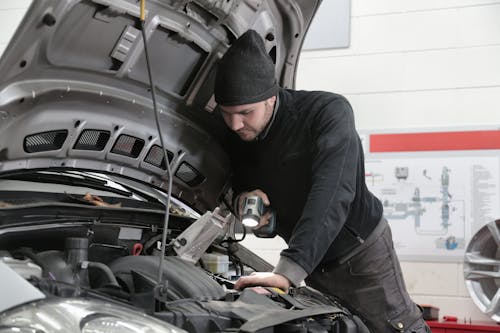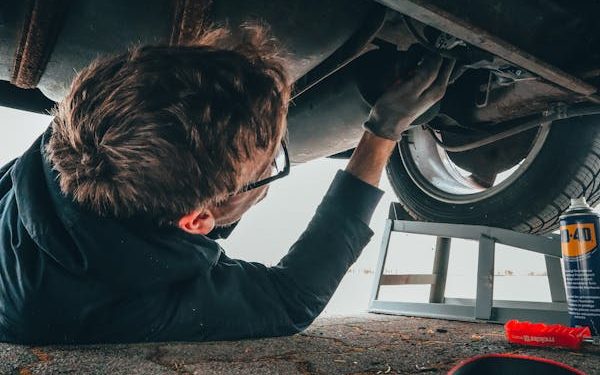Owning a car comes with the responsibility of keeping it in good working condition. Regular maintenance can extend the life of your vehicle, improve its performance, and save you money on costly repairs down the road. Whether you’re a new driver or a seasoned motorist, these essential car maintenance tips will help you keep your car running smoothly for years to come.
1. Check Your Oil Regularly
One of the most important maintenance tasks for any car is checking and changing the oil. Oil lubricates the engine, reducing friction and preventing overheating. Over time, oil can become dirty and lose its effectiveness, which can lead to engine damage. It’s crucial to check your oil level regularly and change the oil as per your vehicle’s manufacturer guidelines. Keeping up with oil changes is one of the simplest ways to ensure the longevity of your engine.
2. Maintain Tire Pressure
Proper tire pressure is essential for your car’s safety and performance. Under-inflated tires can lead to poor fuel efficiency, uneven tire wear, and even tire blowouts. On the other hand, over-inflated tires can make your car harder to handle and increase the risk of damage. Check your tire pressure at least once a month and before long trips. Be sure to follow your car’s recommended pressure levels, which can usually be found in the owner’s manual or on the sticker inside the driver’s door.

3. Inspect the Brakes
Your brakes are one of the most important safety features of your vehicle. If you notice any unusual sounds, such as squeaking or grinding, it could be a sign that your brake pads are worn and need replacing. Regularly inspect your brake pads, rotors, and brake fluid to ensure they are in good condition. If you notice any issues with your braking system, have them addressed immediately to avoid costly repairs or unsafe driving conditions.
4. Replace the Air Filter
A clean air filter is crucial for maintaining your engine’s efficiency. The air filter prevents dirt, debris, and other contaminants from entering the engine and damaging its components. Over time, the air filter can become clogged, leading to reduced engine performance, lower fuel efficiency, and increased emissions. Replacing the air filter is a simple and inexpensive task that can improve your car’s fuel economy and overall performance. Check the air filter every 12,000 to 15,000 miles or as recommended by your vehicle’s manufacturer.
5. Change the Spark Plugs
Spark plugs play a critical role in your vehicle’s engine by igniting the fuel and air mixture that powers your car. Over time, spark plugs can become worn or dirty, leading to poor engine performance, misfires, or difficulty starting your car. It’s important to replace spark plugs at regular intervals to keep your engine running smoothly. Your vehicle’s manual will specify the recommended mileage for spark plug replacement.
6. Monitor Fluid Levels
Cars rely on a variety of fluids to keep everything running smoothly. These fluids include engine oil, coolant, brake fluid, power steering fluid, and transmission fluid. Check these fluid levels regularly and top them up as needed. Low or dirty fluid can cause serious damage to the engine and other critical components. Be sure to follow your manufacturer’s guidelines for fluid replacement and servicing intervals to prevent issues down the road.
7. Keep the Battery in Good Condition
A dead battery can leave you stranded, so it’s important to check your car’s battery regularly. Look for signs of corrosion on the battery terminals, and clean them off with a wire brush if needed. Make sure the battery is securely fastened and check the battery’s charge periodically. If your battery is more than three years old or showing signs of weakness, consider having it tested or replaced to avoid unexpected breakdowns.
8. Pay Attention to the Timing Belt
The timing belt ensures that the engine’s valves and pistons work in sync. If the timing belt fails, it can cause significant engine damage, which is often expensive to repair. The timing belt should be replaced according to your car’s maintenance schedule, typically every 60,000 to 100,000 miles, depending on your vehicle. If you notice unusual engine noises, such as a ticking sound, or if your engine is running roughly, it could be a sign that the timing belt needs attention.
9. Wash and Wax Your Car Regularly
Keeping your car clean isn’t just about aesthetics—it also helps protect your vehicle from rust and corrosion. Regular washing removes dirt, salt, and other debris that can damage the paint and cause rust to form. Waxing your car every few months adds an extra layer of protection against the elements, giving your vehicle a shiny finish while preserving the paint job. Regular cleaning also helps maintain the resale value of your car, making it look well-maintained for years to come.

10. Stay On Top of Seasonal Maintenance
Seasonal changes can affect the performance of your car, especially in regions with harsh weather conditions. Before the winter months, make sure your car’s antifreeze and coolant levels are adequate, and check the condition of your tires to ensure they can handle snow and ice. In the summer, ensure your air conditioning system is functioning properly, and inspect your tires for wear and tear due to the heat. Seasonal maintenance helps prepare your car for changing weather conditions, reducing the risk of unexpected breakdowns.
Maintaining a car doesn’t have to be complicated or expensive. By following these simple car maintenance tips, you can keep your vehicle running smoothly, improve its lifespan, and save money on costly repairs in the long run. Regular checks and timely service will help ensure that your car stays in good condition, allowing you to enjoy safer, more reliable driving experiences.












